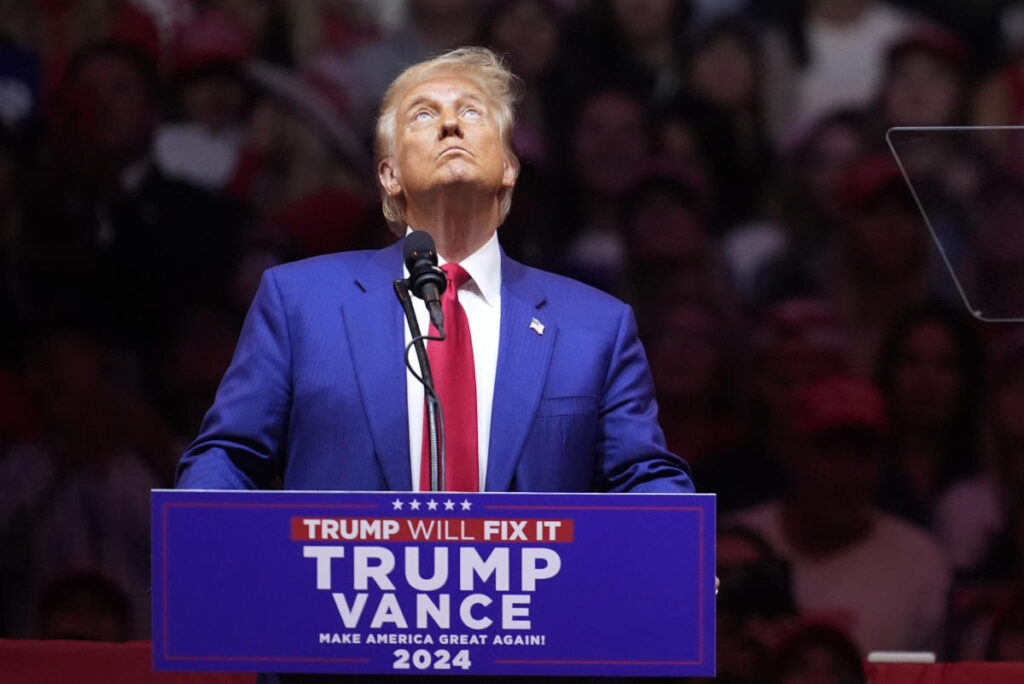The Reflection on American Democracy Post-Election
American presidential elections have always served as a reflective moment for the nation, encapsulating its values, dreams, grievances, and the issues that remain unsettled. The recent election has provided a striking illustration of this, with former president Donald Trump emerging victorious in a highly contentious political landscape. His win resonates with deep-seated emotions among voters who feel disenchanted with the current state of democracy, revealing alarming concerns about the future of American governance. As Trump continues to campaign through a dark narrative that involves invective language and a focus on cultural antagonisms, the collective sentiment is one of dissatisfaction that encompasses various demographics in society.
Trump’s campaign, marked by bombastic rhetoric and unfiltered commentary, has successfully resonated with a sizable portion of the electorate affected by economic insecurities and immigration fears. His narrative, which often paints a bleak picture of America’s condition, defies prevailing data showcasing economic recovery and significant changes in immigration patterns. This disconnection between reality and rhetoric reflects Trump’s ability to tap into the emotions of voters who believe they have been overlooked or wronged by the political establishment. His message of upheaval appeals particularly to those who feel alienated from cohesive national identity, thus enhancing his magnetic pull for a chunk of the electorate seeking a break from traditional political norms.
While Trump’s victory illustrates a shift toward a more authoritarian sentiment among a segment of the population, many express apprehension regarding the potential erosion of democratic principles. A significant portion of voters, despite supporting Trump, reported concerns about moving towards an autocracy. His casual allusions to suspending constitutional tenets, coupled with a platform intent on utilizing executive powers to target political foes, strike at the heart of America’s democratic fabric. With Trump showing a willingness to exploit presidential power for personal agendas, the very essence of checks and balances could be challenged, signifying troubling possibilities for governance in the imminent future.
The recent election serves as a harbinger of broader transformations in democratic norms, with keen implications for institutional autonomy. Trump’s anti-establishment stance has influenced state governments to revise electoral frameworks based on baseless claims of previous election misconduct. The implications are twofold; as Trump ascends to power once more, the structure of elections may face continued scrutiny and modification under his influence. His desires to reshape the civil service landscape further emphasize a willingness to dismantle accountability mechanisms, pointing to a troubling pivot away from adherence to neutral governance procedures.
This election reflects an unsettling realization for America’s political landscape, as it reveals a certain embrace of Trump’s controversial and divisive methods by a considerable segment of the electorate. The proclivity for voters to prioritize discontent over tradition raises significant questions about the future landscape of American democracy. Echoes of concern from political commentators signal a warning about the implications of such electoral choices, as the nation now conceivably faces a governance shrouded in divisive strategies and ill-considered policies associated with Trump’s return.
In the aftermath, the pathway forward for the United States remains uncertain. While the voter base remains disillusioned, Trump’s rhetoric on restoring democracy casts a shadow over genuine electoral integrity. His narrative of a stolen election perpetuates myths that could undermine democratic processes. In response, the broader political apparatus, institutions, and the public must engage in rigorous scrutiny to safeguard democratic foundations against potential encroachments. With significant segments of voters longing for radical change, the future of American governance will necessitate an ongoing negotiation between ideals and the stark realities of a transformed political climate.

